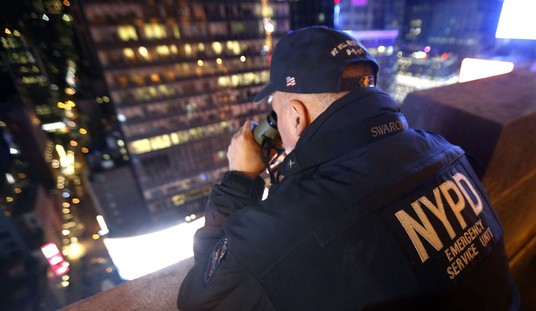When forced to come clean in public life, we often pretty up our deceits in flowery language and clever rhetoric, admitting that we may not have been “accurate” or might not have been “forthcoming.”
We admit to a “misjudgment” or regret that we may have created the “appearance of impropriety.” Language like this is the bread-and-butter of contrite yet pugnacious statements by men and women in the public eye who are caught lying and must confess.
It’s enough to raise the blood pressure. Confronted by truth, those at home get responses that seem to belittle their intelligence, to assume they are too stupid to see what is happening — or that they just couldn’t see clearly in the first place.
Even after his guilty plea, former Durham County District Attorney Mike Nifong, at the center of the Duke lacrosse rape scandal, would only go so far as to say his “statements were not factually true” at his sentencing hearing. Nifong’s words mean, evidently, that there was some other kind of truth, truth beyond just facts, that his “statements” did not match. Bill Clinton, addressing the grand jury in 1998, mounted an existential argument about the status of being itself when he said “It depends on what the meaning of the word ‘is’ is” when asked to square the fact that he had earlier said “there’s nothing going on between” he and a White House intern.
But it is the flat-out denials, in the face of damning evidence, that are the most brazen. They are the last ditch attempt. In a bit about being caught by his wife with another woman, Richard Pryor famously denied and evoked Chico Marx in Duck Soup, asking her, “Who are you going to believe, me or your lying eyes?”
This is the gambit of desperation, the Alamo of truth.
Inexplicably, I feel for the deniers. Who among us has not felt the gut-punch of being caught, and felt the urge to deny? To make it go away with sheer force of will?
This weekend, Senator Larry Craig said he will step down from the United States Senate. In June, he had pled guilty to soliciting sex in a Minneapolis airport men’s room. This came to light recently, and events quickly led to his resignation.
The reactions to these events have been predictable. Many partisans (of both stripes) have sought political gain. Commentators have pointed out the wide gulf between the conduct he admitted to (soliciting sex in a men’s room) and his public actions (he is a long-time and outspoken “family values” supporter). Some have pointed out that he did not actually do anything that much different from what goes on in singles bars: he sent signals to indicate he was interested in a hook-up.
Others counter that this did not happen at a bar, but in a public restroom — where many reasonably expect that they will be able to relieve themselves without being harassed — and that he was caught in a sting that was put into place due to complaints of exactly this kind of behavior.
Craig’s statements as this drama unfolded seem a textbook case of trusting in the power of denial. Many have pounced on his claim “I’m not gay. I never have been gay,” and ask how this claim can be so, given what has happened?
Reading the transcript of his arrest interview with the Minneapolis police sergeant who snared him, I felt a certain compassion for Craig. Sure, he is panicky and bombastic. He by turns tries to weasel out of the situation and just cut to the chase asking what he has to do to get out of there and make his flight. We probably all know people who behave that way when caught. Maybe we’ve behaved that way ourselves.
But, there is a moment in this interview where Senator Craig’s soul seems laid bare, his remorse out there on his sleeve.
Most of America knows by now that according to police, Craig had nudged the foot of the undercover sergeant, who was in the other stall, and then slid his hand along the underside of the stall partition. Craig said at the time he was reaching for a piece of toilet paper. Up to this point, reading the transcript is a bit like watching the interrogation of the perp in a police drama. The officer leads him along, stepping through each action, bit by bit, the case closing in around him.
The sergeant then says he could clearly see the gold wedding ring on Craig’s hand as he ran his hand along the underside of the stall. Craig seems to lose it, at that point. They engage in a long battle over whether he was using his right or his left hand. It seems important to Craig that he convince the sergeant that he was using his right hand, not his left. But the sergeant says he saw what he saw: the glint of his wedding ring.
Ultimately, and pathetically, Craig can do little more than repeatedly deny he used his left hand.
That wedding ring flashes like a beacon. I imagine this man, confessing his guilt, suddenly faced with just how deep his transgression — transgressions, perhaps — may be. Some would see a delicious irony in the fact that this conservative cultural warrior’s confession of adultery turns on his wedding ring. But the detail instead makes me empathetic. Suddenly, Craig seems almost childish, trapped, exposed, panicked.
This small episode contains the seeds of what could be a moment of clarity, where the depth of what is being risked, the stakes of the division between public and secret life, are clear to see. People can grow and heal from places like that.
But they can also refuse to see what is plain to all. You can hear it in Craig’s protestations. The wedding ring, a symbol of a sacred bond, is the focal point around which the real energy of the police interview revolves. Even while admitting guilt, Craig tries vainly to keep that ring out of the picture.
Lies are corrosive threads that shoot through the fabric of our days. Public life is filled with them but private life is, too. They suffocate us, they mount and build and kill our souls.
Larry Craig, on June 11, made a last stand at his own Alamo of truth. I hope he can use his remorse to reach for something better for himself. His lies are testament that, like all of us, he has demons to face.
But listening to his press conference over the weekend, I worry the remorse of June has faded. He speaks in flowery yet bureaucratic language of not being able to “devote 100% of his time” to his beloved Idahoans, because he must “pursue [his] legal options.”
He asks, it seems, that we choose whom to believe — the Senator or our collective, lying eyes.
Brad Rourke writes a column on public life called Public Comments, produces a videolog called Taxonomies, is a founder of the Maryland neighborhood blog, Rockville Central, and is in a band called The West End.









Join the conversation as a VIP Member